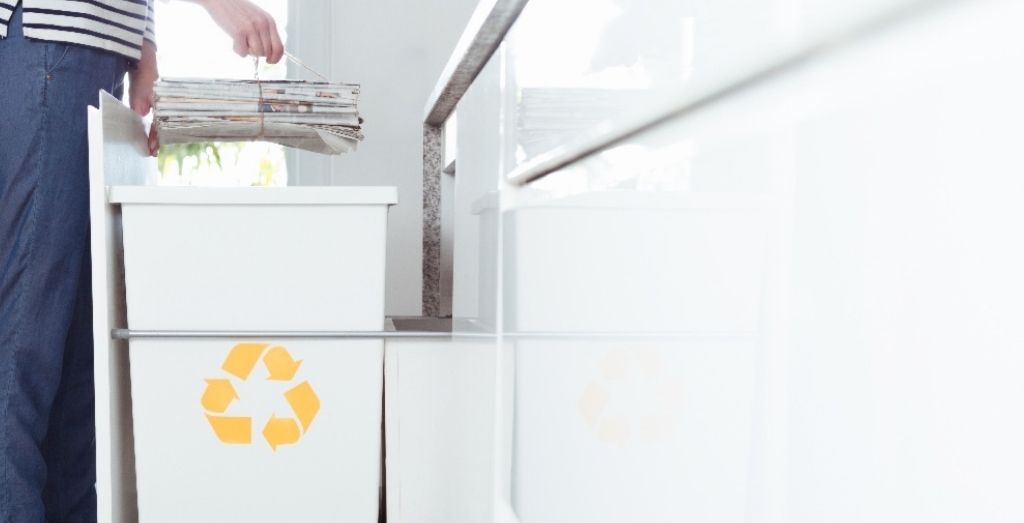The NSW government extended the budget for the Waste Less, Recycle More Initiative with $337 million for 2017-2021. The program aims to modernise the waste sector with more recycling services to the community and ensure a clean environment. Specifically, it has the following objectives:
- Encourage local communities to waste avoidance and recycle.
- Prevent littering and illegal dumping.
- Supply cost-efficient and conveniently located waste infrastructures.
- Support innovative regulatory approaches and programs.
- Provide industry with an opportunity to identify new uses and markets for recyclable materials.
Authorities are doing their job to prioritise recycling, and we should do too. Without the cooperation of each resident, these goals would be far from reality. So you can appreciate more and understand, here is how recycling can save our planet.
Recycling Saves Natural Resources
Most raw materials used for goods are from our natural resources. Trees create paper and wood products, sand is vital for the glass-making process, and metal ores generate metals that are widely used for buildings, electronics, and jewellery. Furthermore, farmers often convert forest lands to pastures for livestock production.
We need a balance between providing human necessities and protecting the environment. However, that is not happening. We exploit our natural resources to the point that they cannot recover. So, one of the best ways to solve this is through recycling.
When we recycle, we are protecting our natural resources from exploitation. According to the University of Southern Indiana, with a tonne of paper recycled, we can save about 17 trees 1,400L of oil, 2.3 cubic metres of landfill space, 4,000kW of energy, and 26,500L of water. On the other hand, most metals are recyclable, so they should avoid landfills as much as possible. Thus, recycling should always be our priority to help save our planet.
Recycling Reduces Greenhouse Gas Emission
As mentioned earlier, trees are an essential part of the ecosystem since they provide oxygen and absorb carbon dioxide. However, when humans irresponsibly cut them, dead trees are prone to emit a higher carbon footprint as they release it from their storage.
Carbon dioxide is a component of greenhouse gases. When it is abundant in the atmosphere, it will trap heat and cause global warming.
Aside from carbon dioxide, we should also be wary of methane gas. Food waste ending up in landfills releases this component of greenhouse gases during their decaying process. We cannot recycle food, but we can avoid them on the dumpsites by not producing leftovers when we eat.
Recycling Decreases Landfill Rate and Incineration
There are three possible sites where your wastes could end up — landfills, recycling centres or incineration facilities. Other waste treatments are also available, but they depend on the rubbish system of the council.
First and foremost, landfills should be the least priority for waste disposal. We cannot just wait for them to decay since it could take hundreds of years. So, incineration or burning them is an alternative. One concern in using incineration is its release of greenhouse gases into the atmosphere. However, according to a study during a 1994 lawsuit in the US, it emits lower greenhouse gases than landfills. In short, incineration is the lesser of the two evils.
If you could avoid the two evils, why not, right? Through recycling, you can save landfill spaces. Also, even though incineration is slightly better than landfills, it still emits greenhouse gases and toxic waste during the process. Thus, recycling is the best solution how to dispose of rubbish properly.
Recycling Protects Ecosystem and Wildlife
Deforestation has been a problem for so many years now. Humans continue to clear forest lands that are natural habitats for wildlife. In NSW alone, tree-clearing is responsible for the death of 5 million animals per year as they lose food sources and shelter. And do you know the sad part is? Despite the number, authorities have eased the legal process of cutting trees. That means more and more forest animals will suffer.
Aside from demanding stricter laws, we can help the ecosystem and wildlife by recycling. Lesser product demands mean the lesser clearing of forest resources for human necessities. Moreover, when we recycle, especially plastics, we can also avoid litter items that affect the environment.
Related: How Often You Should Clean Out Your College Dorm Room
Conclusion
We experience severe climate changes today, and we are the ones to blame. Exploiting our natural resources without thinking about the implications will negatively affect us. So, how can we save our planet? Recycling can help save forest resources, reduce greenhouse gases emission, decrease landfill rates and incineration, and protect ecosystems and wildlife. So, prioritise recycling now to have no regrets in the future.
Paul’s Rubbish Removal Priorities Recycling
Here at Paul’s Rubbish Removal, we provide first-rate rubbish removal services for a better and greener future. We collect all types of rubbish and get rid of them with recycling as our priority. We have a vast connection with recycling partners who can transform your waste into something valuable.
Our professional removalists also make sure to follow the NSW EPA Guidelines on proper waste management and disposal. We are your one-call away friend when you need a quick and same-day rubbish removal service. We only dispatch the best and the brightest team to attend to all of your rubbish needs. No matter where you are in Sydney, you can always put your trust in Paul!
Together, let us save our planet. Discard wastes in the eco-friendliest way with us! Call us today at 0407 125 125 or send us a message via email.







